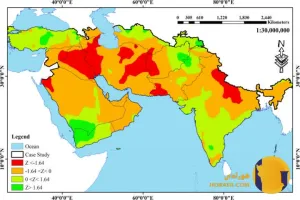
Latest Tech Regulations in the US 2025 Updates
The United States is entering a new era of technology regulation, with lawmakers and federal agencies introducing sweeping rules that will reshape how tech companies operate. From artificial intelligence governance to data privacy protections and antitrust enforcement, 2025 is proving to be a pivotal year for the tech industry.
This article examines the most significant regulatory changes, the sectors they affect, and what these updates mean for both businesses and consumers.Latest Tech Regulations in the US 2025 Updates
1. AI Regulation Takes Center Stage
The rapid growth of artificial intelligence has triggered strong calls for oversight. In early 2025, the US Artificial Intelligence Accountability Act was signed into law, marking the first comprehensive federal AI legislation.
Key Provisions
- Transparency requirements AI developers must disclose training data sources and provide explainability reports for algorithms used in decision-making.
- Risk assessment obligations Companies deploying high-impact AI systems (e.g., in healthcare, finance, hiring) must conduct independent risk audits.
- Consumer rights Individuals have the right to opt out of fully automated decision-making in sensitive contexts.
Impact Big tech companies like Google, Microsoft, and OpenAI are adjusting their development cycles to meet the new documentation and audit requirements. Startups face higher compliance costs but gain a clearer legal framework for product deployment.
2. Data Privacy The Federal Digital Privacy Act (FDPA)
After years of relying on state-level laws like California’s CCPA, the federal government has enacted the Federal Digital Privacy Act, harmonizing privacy protections nationwide.
Core Rules
- Universal consent standard Companies must obtain explicit consent before collecting sensitive personal data.
- Data minimization Businesses can only collect data necessary for the stated purpose.
- Right to deletion and portability Users can demand deletion of their data or receive it in a portable format within 45 days.
Impact Tech firms are reworking their data collection strategies, especially in advertising and e-commerce. Consumer trust is expected to rise, but targeted ad revenue may drop in the short term.
3. Antitrust Enforcement Intensifies
The Federal Trade Commission (FTC) and the Department of Justice (DOJ) have stepped up antitrust scrutiny in 2025, particularly against dominant platform companies.
Recent Actions
- Merger restrictions Several high-profile mergers (including a major gaming studio acquisition) have been blocked due to concerns over market concentration.
- App store reforms New rules require app marketplaces to allow third-party payment systems and reduce commission fees.
- Breaking up monopolies Ongoing litigation against at least two tech giants could result in the separation of certain product divisions.
Impact Competition in cloud computing, app distribution, and e-commerce marketplaces is expected to increase, giving smaller companies more opportunities.
4. Social Media Content Responsibility
A new Online Harm Reduction Framework has introduced legal obligations for social media companies to monitor and respond to harmful content.
Main Requirements
- 24-hour takedown policy Platforms must remove flagged harmful content within a day.
- Independent moderation audits Annual third-party evaluations of content moderation systems.
- Age verification for minors Platforms must implement robust age-gating to protect under-18 users.
Impact While advocacy groups welcome stronger content safeguards, free speech organizations warn of potential overreach. Smaller platforms may struggle to afford compliance technologies.
5. Cybersecurity and Critical Infrastructure
The Cybersecurity Resilience Act of 2025 imposes strict security standards on companies operating in sectors deemed critical, such as finance, healthcare, and energy.
Requirements
- Mandatory incident reporting within 48 hours of a breach.
- Zero-trust architecture adoption for large enterprises.
- Supply chain security audits for tech vendors.
Impact Government agencies and corporations are investing heavily in cybersecurity tools. Demand for cybersecurity professionals is at an all-time high.
6. Emerging Trends in US Tech Regulation
A. AI & Copyright Law
The US Copyright Office is drafting new guidelines to address intellectual property rights for AI-generated works.
B. Cryptocurrency and DeFi Oversight
The Digital Asset Regulatory Framework is in development, aiming to standardize rules for cryptocurrency exchanges, stablecoins, and decentralized finance protocols.
C. Green Tech Compliance
New environmental reporting requirements for large data centers will enforce energy efficiency targets and carbon emission disclosures.
7. Business and Consumer Reactions
- Tech Industry Mixed reactions — larger companies welcome regulatory clarity but warn of stifling innovation.
- Consumers Support privacy and safety rules but remain concerned about reduced access to free services if monetization models change.
- Investors Increased compliance costs are influencing market valuations, particularly for ad-driven platforms.
8. What to Expect Next
- AI certification programs may become mandatory by 2026.
- A possible federal “right to repair” law could reshape electronics manufacturing.
- State vs. federal tensions may persist as some states push for even stricter privacy and AI laws.
Final Thoughts
The latest US tech regulations reflect a global trend toward stronger oversight of powerful technology companies. While these rules will challenge business models and innovation speed, they also aim to protect consumers, encourage fair competition, and ensure responsible use of emerging technologies.
The next 18 months will be critical as companies adjust, legal challenges unfold, and policymakers fine-tune the balance between innovation and accountability.









































